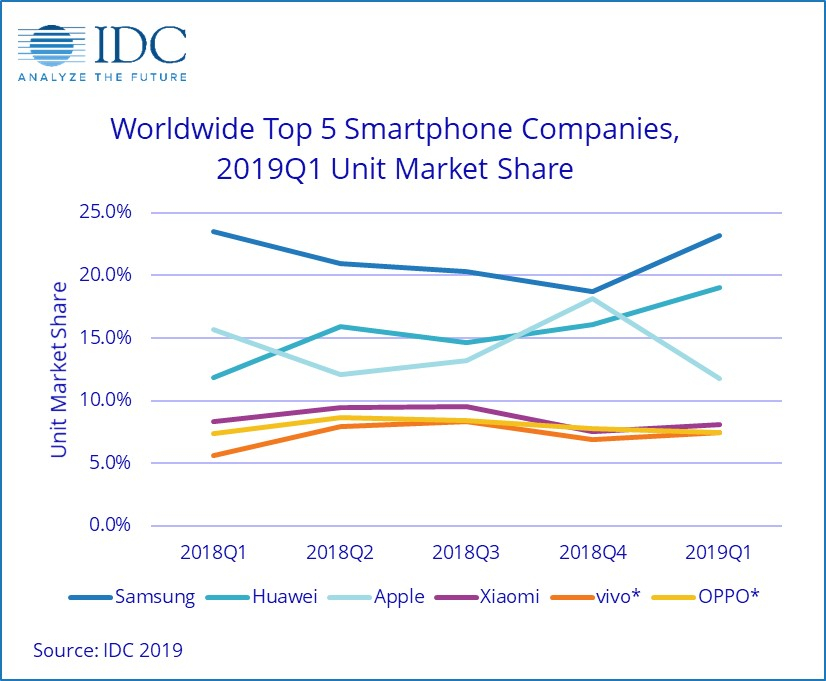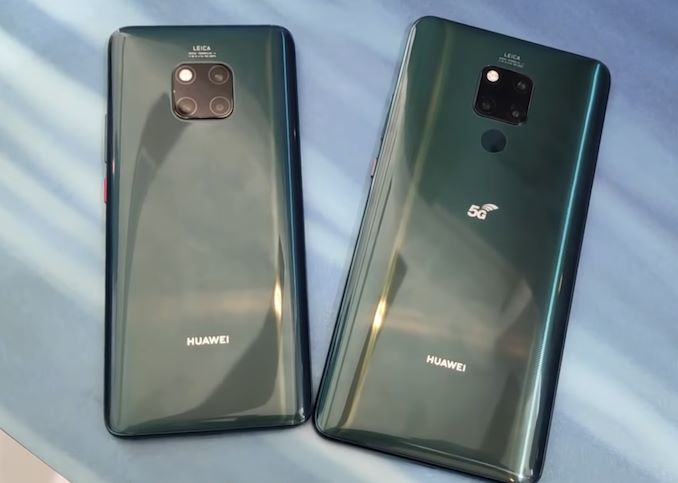
Technology
09:01, 06-May-2019
Opinion: Copying Huawei won't make iPhone much better
Updated
14:15, 06-May-2019
Gong Zhe

(Editor's note: Gong Zhe is the leader of CGTN Digital's sci-tech department. The article reflects the author's opinion, and not necessarily the views of CGTN.)
iPhone's future is in big trouble. The current XS models are not attractive enough to stop customers from switching to Huawei and Samsung, while the new "XI" models look like a bad copy of Huawei's last-generation Mate 20.
Apple is lagging behind
iPhone's market share is being taken away by Huawei and Samsung in volumes, according to data from the International Data Corporation (IDC).
The IDC found "a staggering 30.2 percent decline" in iPhone 2019 Q1 shipments compared to the same period last year. And looking at the graph they provided, you can clearly see most of the lost shares went to Huawei and Samsung.
After the bite on Apple's market share, Huawei is now the world's second largest smartphone maker after Samsung, according to the IDC.

Global smartphone market share in the recent five quarters. /Screenshot from IDC
Global smartphone market share in the recent five quarters. /Screenshot from IDC
Why is Apple losing to rivals?
Look around the smartphone market and you will soon realize Apple is one of the few brands that still sells a dual-camera flagship.
Additional cameras help users taking group photos without walking backward, and close-up shots without blurring. So lacking the third and fourth camera limited users' ability to capture important moments in their lives.
Apple knows this disadvantage and is trying to catch up. As seen from the latest leaks of "iPhone XI," Apple will also mount at least three cameras on the back of the phone.
But the layout of the cameras look much like Huawei's Mate 20, a phone that‘s been selling for more than half a year.
What's worse, the U.S. phone giant positioned the cameras on the top-left corner just like the iPhone X, breaking the balance of the phone's design by emphasizing too much on this single corner. You can see the leaked design in the top photo.
Lots of Apple fans are already complaining about the strange design even though the phone is not announced yet.
It's hard to say if additional cameras can help Apple win the next round of the smartphone battle because Huawei has been diving deep into the algorithms behind multi-camera phones. Huawei's latest P30 Pro can zoom up 50 times and even take a rather clear shot of the moon. That's not something Apple can copy in a day.
Lack of 5G
Copying Huawei features is not a way out for Apple, because some cutting-edge technologies are not available to it. And 5G is one of them.
Apple cannot make a 5G smartphone by itself until 2021. The company used to rely on Qualcomm and Intel to let iPhones have signal bars.
But Intel has announced to quit the signal chip business and Qualcomm is making Apple bleed money after the two companies settled their court cases.
Huawei can also make 5G signal chips. But the U.S. is using political pressure to bar Huawei parts from entering the country. If Apple puts Huawei 5G chips in iPhones, chances are they'll get banned in their own land.

The 5G version of Huawei Mate 20 X is available now in Switzerland. /Picture from Zing Gadget
The 5G version of Huawei Mate 20 X is available now in Switzerland. /Picture from Zing Gadget
Accredited Apple analysts like KGI's Kuo Ming-Chi have denied the possibility of a 5G iPhone in 2019. So at the beginning of 5G, Apple will be absent.
What can Apple do?
Apple has long been relying on new technologies to make iPhones seem magical and attractive. But latest phone tech is absent from the U.S. phone maker.
Now the innovation-driven company has finally bowed down and joined the price war, reducing iPhone XR's prices multiple times in China to attract less rich buyers.
Introducing a second 5G chip supplier is also on the list. Analysts are suspecting Samsung to be the next company to help Apple building a 5G iPhone.
As Apple shifts focus from hardware to content, it's also possible that they produce some really great videos and games to persuade users to settle for a less cool phone.
For Tim Cook's China-U.S. trade relations theory, I would say it's not going to help a lot. iPhone's bad sales in China clearly stem from pricing mistakes and weak signals, not better China-U.S. trade relations. The trade problem is still there and will not go anywhere any time soon.
Apple's "archenemy" Microsoft has become the second trillion-dollar company without a working smartphone system. The Cupertino company really needs to come out with something new to get the users back.

SITEMAP
Copyright © 2018 CGTN. Beijing ICP prepared NO.16065310-3
Copyright © 2018 CGTN. Beijing ICP prepared NO.16065310-3